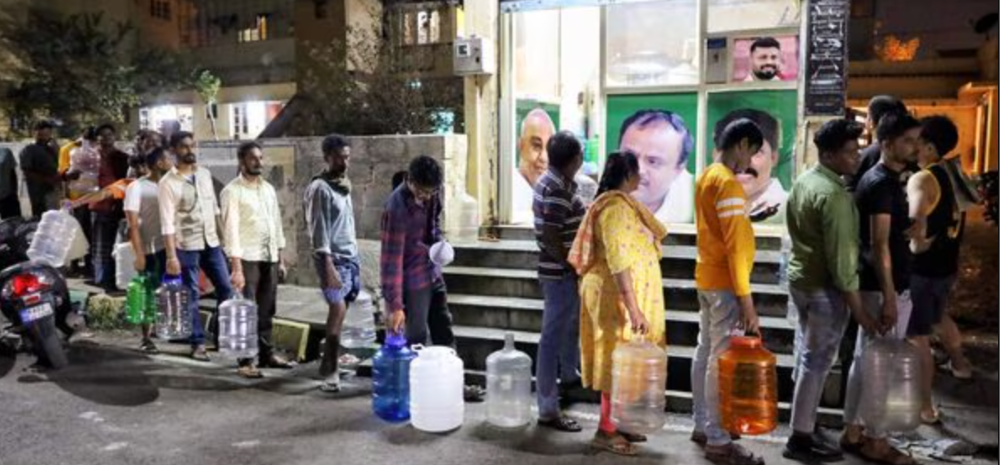Dealing with water crisis like never before, life stands disrupted in the Silicon Valley of India, which is rather known for its business disruptor start-ups.

Bengaluru’s Water Crisis Spurs Call for WFH Policies
Amid acute water crisis, people from gated communities are going to the malls to use restrooms, households have been asked to install aerators and what not. In the latest series of effects and aftermath, citizens of Bengaluru are advocating the implementation of Work from Home (WFH) policies by both the IT industry and the government.
By reducing the city’s population density, the temporary WFH arrangements could help alleviate the strain on Bengaluru’s resources.
As per the reports, as compared to a daily requirement of 2,600 million litres of water per day (MLD), Bengaluru is facing a significant shortage of approximately 500 MLD.
Call for WFH Echoes in Legal & Water Circles!
Chipping in, legal experts as well as water specialists have joined this and urged the government to endorse the WFH. Former acting Chief Justice of Karnataka and Assam High Court, Justice K Sreedhar Rao proposed the implementation of WFH policies specially for the city’s massive IT workforce, estimated at around 15 lakh individuals.
He said that allowing WFH for a year could mean 10 lakh people returning to their hometowns, eventually easing the strain on the water resources of the city.
He highlighted the population burst which has strained the city’s water level. He advocated further ways like additional measures such as desilting of lakes to address the water crisis effectively.
Many netizens are supporting the idea of WFH since it could actively contribute to water conservation efforts and alleviate pressure on Bengaluru’s infrastructure.
Users have further acknowledged the potential that IT companies have in facilitating WFH for migrant employees, allowing them to return to their native places during the water shortage period.
Not just the present situation, but also the near future prospects seems bleak for the city since the forecast has predicted insufficient rainfall during the 2024 monsoon season.
HSM Prakash, Retired deputy director-general from the Geological Survey of India, warned about the anticipated deficit as well as its future impact.
The situation is grim, with half of the city’s borewells have already dried up, Bengaluru needs to move fast and do whatever it takes to keep the city afloat.
How the city deals with this menace is yet to be seen, but power to Bengaluru, until then….











